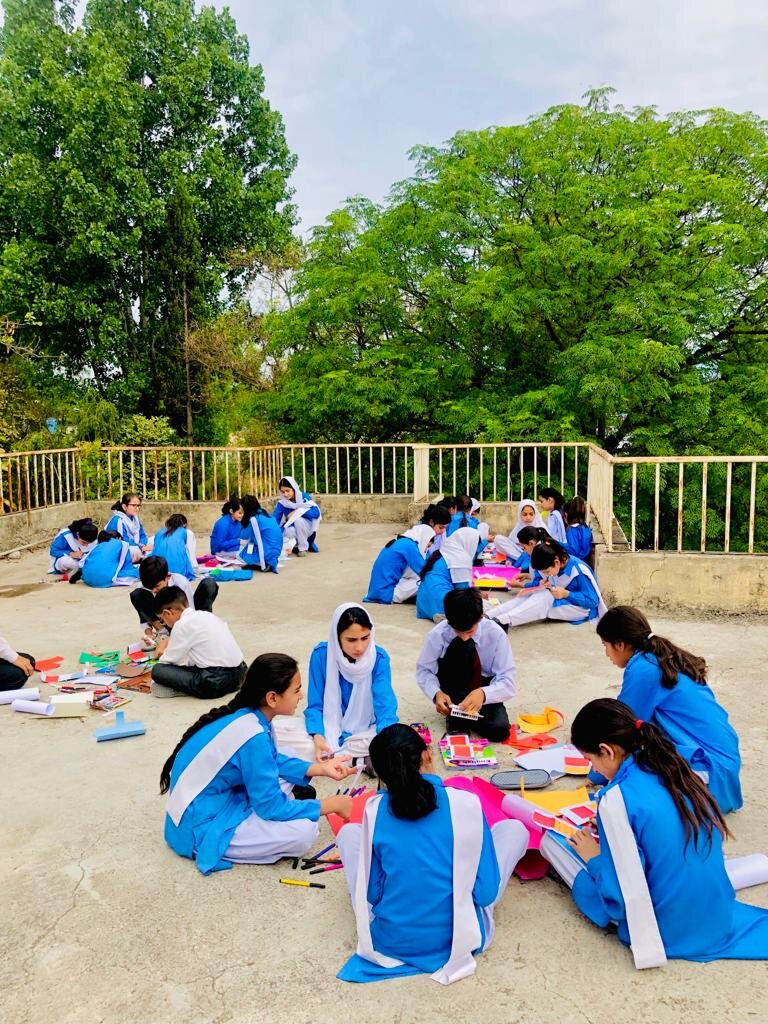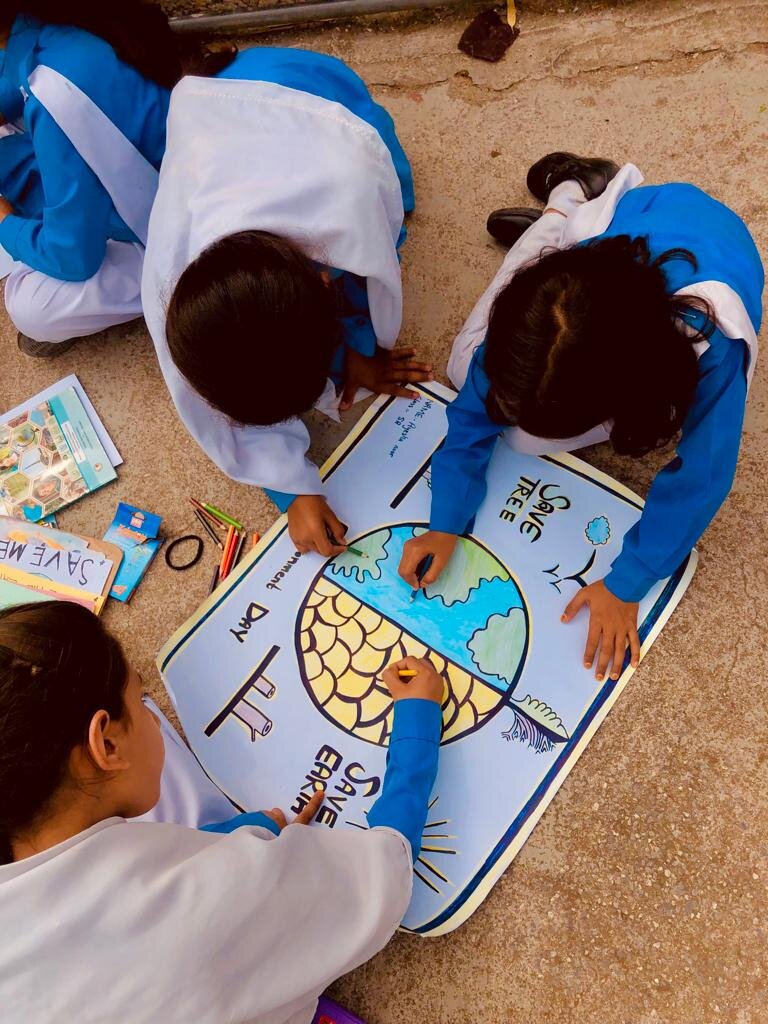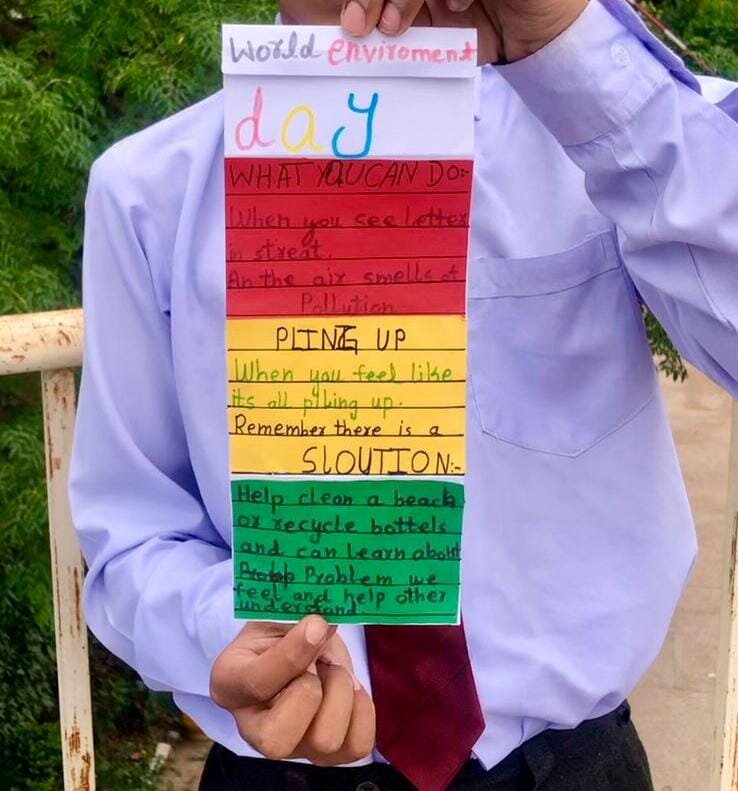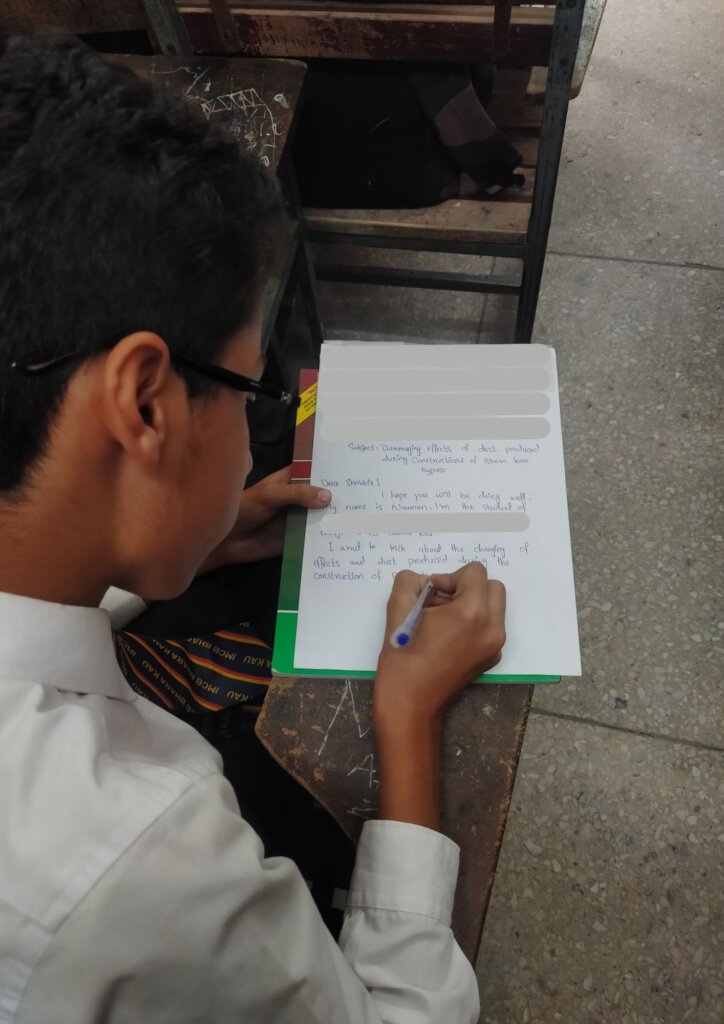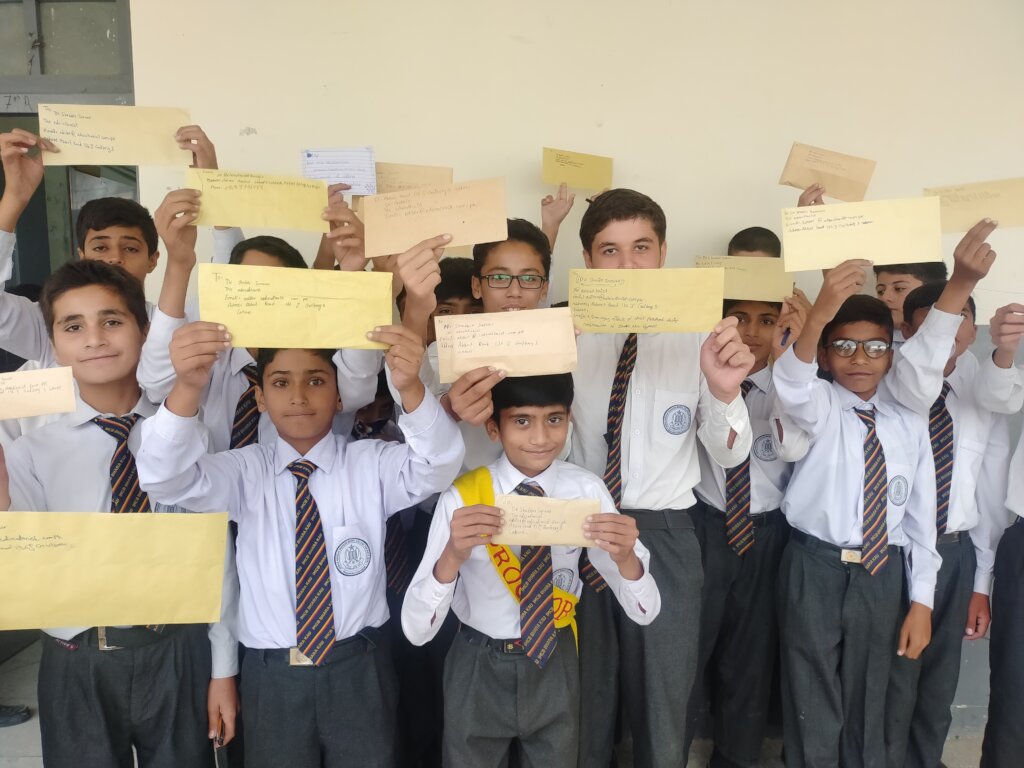By Hamna Aamir | Senior Associate, Development and Partnerships
Dear friend,
With the New Year fast approaching, we are excited at the prospect of reflecting on the past few months with the hope of all that is to come! Our 155 Fellows have been hard at work in their schools and classrooms, working to improve their students’ outcomes in service of ending educational inequity in Pakistan. Second-year Fellows have simultaneously been working to initiate their Community Partnership Projects; small-scale solutions Fellows undertake in the second year of their Fellowship as a response to barriers to student learning.
With the 28th Annual Conference of the Parties (COP) Summit just having ended and a surge in conversations on climate change, we thought it important to reflect on our own year in regards to the topic. Pakistan’s context and positioning in the climate conversation is unique given its place in the Global South. Despite contributing to less than 1% of the world’s carbon emissions, our vulnerable communities have been most disproportionately impacted by climate disasters - the floods of June 2022 a prime example.
Although Teach For Pakistan does not operate in communities directly impacted by the floods, we do work with vulnerable communities that are witness to similar disasters on various scales regularly. We strongly believe, then, that what we teach our students in classrooms must be grounded in the reality of what they experience in their daily lives.
Along with working to improve academic outcomes, our Fellows also work with their students to build their non-cognitive skills including team-work, resilience, and critical thinking among others. Fellows’ work on climate education is no different. Their work is testament to the belief that it is critical to center the voices of those that are impacted by climate change most disproportionately and learn with and from them about how a concept so vast and abstract can manifest across localities.
Read on for snapshots from the past year of Fellows’ work on climate education and climate action in their classrooms and communities.
Building Climate Understanding
2022 Fellow Sana has always felt passionately about the environment and ensuring that we be cognizant of our impact on the natural world. When she began teaching her students, she found that they only thought of climate change as a result of natural phenomena, and not that human actions contribute to it as well. Her students didn’t realize how humans can contribute to such a problem, thereby also undermining their own agency in impacting and mitigating it.
To counter this, Sana took up several activities to engage her students with the topic through practical learning and built their understanding of climate change and climate action through climate education. These activities included tree-planting drives and poster-making competitions. Sana’s students also conducted clean-up drives in their school and made and disseminated brochures in their communities spreading awareness about conserving natural resources and the environment.
As a result of this engagement, Sana’s students not only have a deeper understanding of climate change, but have also adopted more climate-friendly practices such as minimizing their use of paper, being cognizant of wasting electricity and water, and ensuring that they decrease their use of plastic. Most importantly, her students have also taken to planting various trees, vegetables, and flowers in their community and have designated days where they conduct clean-up drives within their own school and community.
Sana and her students’ dedication to strengthening their understanding of climate change tells us that the best time to start is now, and never to undermine one's own power in impacting the world around us.
Climate Conversations beyond the Classroom
First year Fellow Toseef teaches English to grades 6 and 7 at a public school in Bhara Kahu. With an undergraduate degree in Environmental Sciences, he is particularly invested in incorporating climate education in his English lessons, and has found innovative means to do so.
When Toseef began teaching, his students didn’t seem to understand the connection between CO2 emissions and its link to climate change. Through a more focused discussion with his students, he found that not only did his students understand the link, they were also able to connect the problem to their daily life! Something seemingly foreign just minutes earlier became accessible with a simple nudge of pushing students to think a little deeper.
Toseef began to incorporate climate education in his English SLOs. When students were required to learn application-writing, they did so by practicing writing an application to the local MNA to highlight the issue of a nearby road that is the cause of traffic jams and subsequent environmental pollution such as waste and water mismanagement as well as stagnant water that is home to harmful bacteria. Similarly, another SLO called for students to write a letter to an editor to detail the personal risks associated with environmental degradation.
As a result of these efforts, Toseef’s students now have the vocabulary to explain the circumstances they live in and an enhanced sense of agency with the understanding that they also have the ability to impact that which affects their lives.
Our Fellows and their students work on climate education has shown us that to solve for any problem, we must learn about it with those who see it most closely in their day-to-day, and that solutions to a crisis as vast as climate change can come in different shapes and sizes!
Continue to donate to Teach For Pakistan to support the critical work of empowering future leaders to think more deeply about important topics such as climate change!
Project reports on GlobalGiving are posted directly to globalgiving.org by Project Leaders as they are completed, generally every 3-4 months. To protect the integrity of these documents, GlobalGiving does not alter them; therefore you may find some language or formatting issues.
If you donate to this project or have donated to this project, you can receive an email when this project posts a report. You can also subscribe for reports without donating.
Support this important cause by creating a personalized fundraising page.
Start a Fundraiser